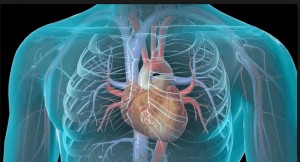
It is not as common as hypertension which affects about 22 per cent of adults aged 18 and above globally.
Hypotension may be a signal to an underlying medical condition but it can be identified with a measuring apparatus for checking the pressure of the blood in the human circulatory system.
Most of the time, attention is on high blood pressure but there is equally a silent low blood pressure or hypotension to watch out for.
Symptoms
Explaining the difference between Hypertension and Hypotension, a cardiologist with the Lagos University Teaching Hospital, Dr. Olusegun Joseph, said that “the normal blood pressure is between 90-120 over 60-80. Anything lower than 90 over 60, is termed hypotension, he said.
“They are not uncommon. Usually it is secondary to some diseases. There are people that are naturally, their blood pressure is 80/60, 80/55 and they are doing well. Such people, if they are not symptomatic there is nothing to really worry about. The problem comes when there are symptoms”.
Hypotension would seem to be a blood pressure reading to strive for but for some people, it can cause mild symptoms and in severe cases low blood pressure can be life-threatening.
As much as this life-threatening condition exists, very few people know about it, as indicated by a survey of opinions carried out by Channels Television’s health correspondent, Yomi Otaigbe.
But Dr. Joseph says “you need to know your numbers especially as you are growing. Alright, what are the numbers? Your blood pressure. The other thing is to know if your blood sugar is ok.
“This is because diabetes can cause, you know, hmm, hypotension. It can also predispose to hypertension anyway”.
For another cardiologist with the teaching hospital, Dr. Casmir Amadi, “when somebody has low blood pressure that has clinical relevance, the ability of the organs to receive blood becomes impaired. The commonest organ that will suffer will be the brain, the brain will not receive enough blood supply. So, usually they feel very dizzy and may have blurry vision”.
Explaining symptoms of the condition further he said: “If they lie down on the bed and trying to get out of bed, they will feel dizzy and if the low blood pressure is so bad, it may affect the perfusion of the heart muscle as well”.
Whether it is hypertension or low blood pressure, it is important to get regular blood pressure checks so as to pick up any abnormality early enough and get prompt treatment where necessary.

